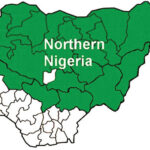President Muhammadu Buhari has unveiled a new power target for the country, following the signing of electricity road map agreement between the Federal Government and German-based Siemens.
The signing of the implementation agreement was held at the Presidential Villa, Abuja on Monday.
The Director General of the Bureau of Public Enterprise (BPE), Dr. Alex Okoh signed on behalf of the federal government and the Chief Executive Officer of the Siemens, Mr. Joe Kaeser signed for the firm.
The deal, our correspondent reports, was the product of a meeting President Buhari held with German Chancellor, Angela Merkel on August 31, 2018.
Speaking during the signing of the agreement, the president said the government’s goal was to deliver electricity to Nigerian businesses and homes.
The target are in three phases. 7,000 megawatts in 2021, 11,000 in 2023 when the president’s second term will elapse. The final phase has a target of 25,000mw.
The president said: “My challenge to Siemens, our partner investors in the Distribution Companies, the Transmission Company of Nigeria and the Electricity Regulator is to work hard to achieve 7,000 megawatts of reliable power supply by 2021 and 11,000 megawatts by 2023 – in phases 1 and 2 respectively.
“After these transmission and distribution system bottlenecks have been fixed, we will seek – in the third and final phase – to drive generation capacity and overall grid capacity to 25,000 megawatts.”
He said, with the strong commitment to the development of Mambilla Hydroelectric and the various solar projects under development across the country, the long-term power generation capacity will ensure adequate energy mix and sustainability in the appropriate balance between urban and rural electrification.
“Our intention is to ensure that our cooperation is structured under a Government-to-Government framework. No middlemen will be involved, so that we can achieve value for money for Nigerians. We also insist that all products be manufactured to high quality German and European standards and competitively priced.
“This project will not be the solution to all our problems in the power sector. However, I am confident that it has the potential to address a significant amount of the challenges we have faced for decades,” he said.
“It is our hope that as the power situation improves, we will improve investor confidence, create jobs, reduce the cost of doing business and encourage more economic growth in Nigeria,” he said.

 Join Daily Trust WhatsApp Community For Quick Access To News and Happenings Around You.
Join Daily Trust WhatsApp Community For Quick Access To News and Happenings Around You.


